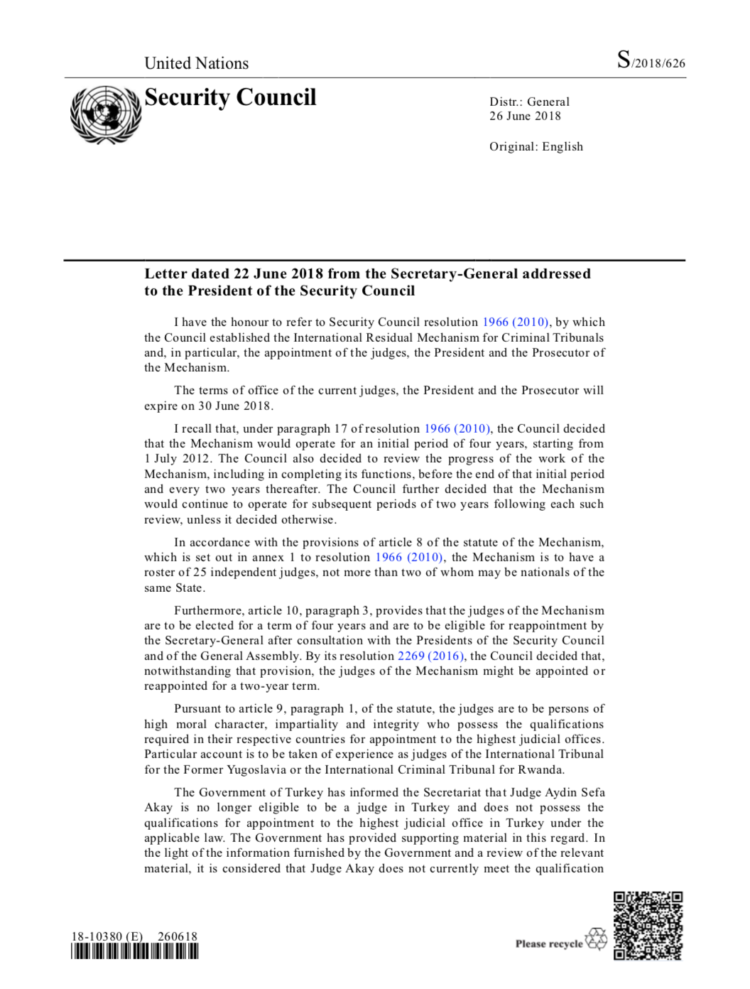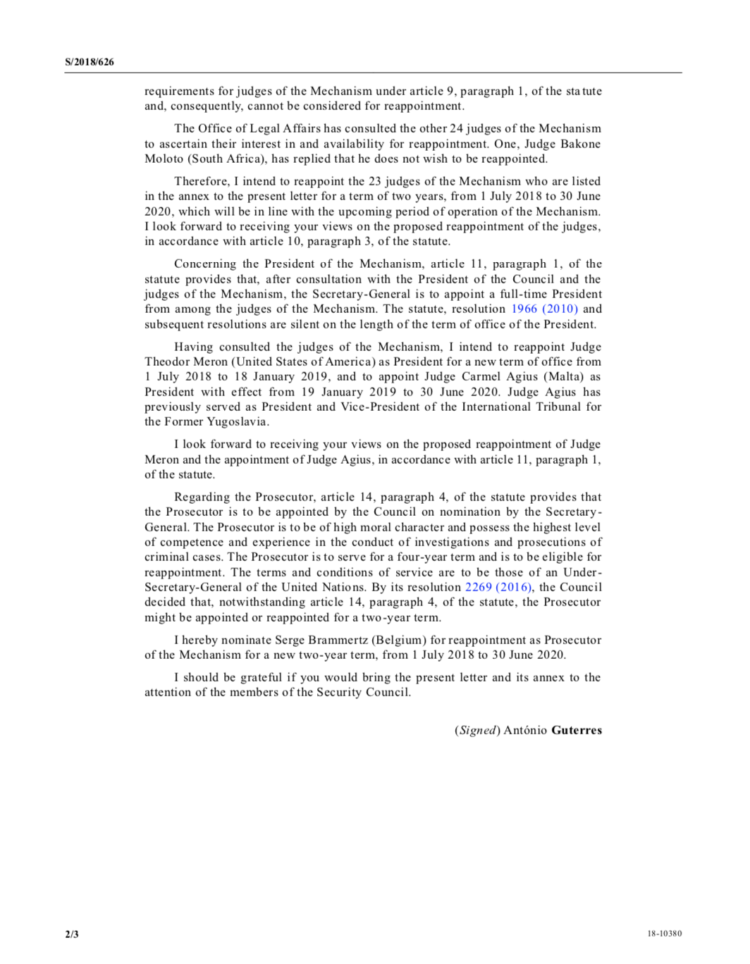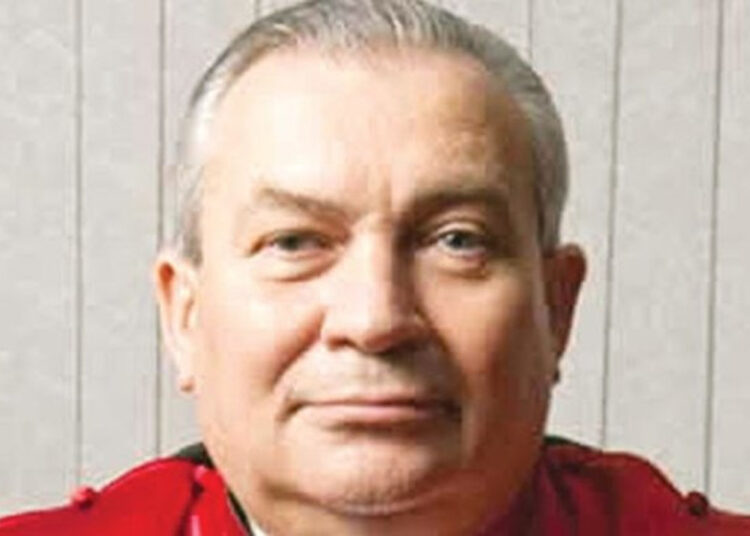Levent Kenez/Stockholm
The European Court of Human Rights (ECtHR) on April 23 issued a verdict stating that Turkey violated the rights of Aydın Sefa Akay, who had been arrested on allegations of terrorism after a coup attempt in 2016, disregarding his diplomatic immunity as a UN judge.
Akay, a Turkish citizen, is currently incarcerated in Rize province in northeastern Turkey following his sentencing in 2021 for affiliation with the Gülen movement, a group critical of Turkish President Recep Tayyip Erdogan.
The court’s verdict highlighted the inconsistency of the domestic courts’ interpretation regarding the diplomatic immunity of the judge, failing to align with the requirements of legal certainty under Article 5 (right to liberty and security) of the European Convention on Human Rights.
Additionally, Article 8 (respect for private life) was found to have been violated. The court determined that the searches conducted on Akay’s person and residence lacked a basis in law.
Despite the UN’s formal assertion of diplomatic immunity, Akay was sentenced to seven years, six months in June 2017 for alleged membership in a terrorist organization. The court opted to release him under a travel ban. However, following the Supreme Court of Appeals’ upholding of his sentence in 2021, he was once again put in prison.
Akay was accused of using the ByLock messaging application, allegedly used by members of the Gülen movement, and of possessing two books by Fethullah Gülen, who inspired the movement. Akay described himself as a Freemason and testified that he downloaded the app from the Google Play Store to communicate with his Masonic friends.
According to Akay’s statement in the ECtHR ruling, he said, “At the request of the former Minister of Foreign Affairs of Burkina Faso, I downloaded the program from Google Play Store in December 2015 and contacted him and about Masonic topics for three to four months. I only downloaded this program without using any encryption from the Google Play Store and used it. There is no encryption. This is the first time I have heard about encryption here. I haven’t talked to anyone else … .”
When questioned about the two books found in his home, he responded, “I have more than 2,000 books on every topic in my library. I am sure they are not criminal. Also, I write books, do academic research and hold conferences/seminars. It is natural to have books by different authors in my library.”


The Turkish government accepted such activities as having an account at Bank Asya, affiliated with the Gülen movement; serving in an administrative position at a Gülen-linked institution; subscribing to the group’s publications; being a member of a trade union or other institution linked to the movement; and using the ByLock encrypted messaging application as benchmarks for identifying and arresting tens of thousands of followers of the Gülen movement on charges of membership in a terrorist organization
However, in a groundbreaking decision with potentially widespread implications, the Grand Chamber of the ECtHR ruled in September 2023 that the conviction of Yüksel Yalçınkaya, a teacher in Turkey, on terrorism charges, including the use of ByLock and having an account at a specific bank, was unlawful.
According to a previous report by Nordic Monitor, the primary reason for Akay’s arrest is purported to be the alleged orchestration by the government of President Erdogan to replace a sitting United Nations judge with an Islamist academic. This individual had been previously rejected by the ECtHR due to insufficient credentials to serve on the bench in Strasbourg.
The operation was launched in September 2016 when Akay, a judge with the Mechanism for International Criminal Tribunals (MICT), was arrested in Turkey on fabricated charges of terrorism. Akay was a member of the panel of judges that is reviewing the case of a former Rwandan government minister who was convicted of involvement in his country’s 1994 genocide.
He was one of some 4,000 judges and prosecutors who were purged and/or jailed over alleged coup involvement or terrorist links that independent observers describe as fabricated charges to subordinate the judiciary in Turkey.

With the Erdogan government’s lobbying efforts at the UN, Akay was replaced by Yusuf Aksar, a professor of law who has been a loyal supporter of the Erdogan government.
On January 31, 2017, a United Nations legal panel ordered Turkey to release the judge by February 14 and halt legal proceedings against Akay, who has diplomatic immunity from prosecution. “The United Nations Mechanism for International Criminal Tribunals today ordered the Government of the Republic of Turkey to cease all legal proceedings against Judge Aydin Sefa Akay and to take all necessary measures to ensure his release from detention, no later than 14 February 2017, so that he can resume his judicial functions in the case of Prosecutor v. Augustin Ngirabatware. The order is binding on Turkey under United Nations Security Council Resolution 1966 (2010), which requires that all States comply with orders issued by the Mechanism,” the UN International Residual Mechanism for Criminal Tribunals said.
The Erdogan government balked at the request. The demand to release a top United Nations judge is “void,” Turkish authorities said in a letter to the UN Security Council. They said the International Residual Mechanism for Criminal Tribunals’ request for the release of Akay exceeded its limits of authority “by interfering in the independent judiciary of Turkey.”
In March 2017 the detention of Akay was referred to the United Nations Security Council, and the Turkish government was charged with infringing on the judicial independence of a UN war crimes tribunal by holding one of its judges in detention despite an order to release him.
In June 2017 a Turkish court convicted Akay on terrorism charges and sentenced him to seven years, six months in prison. He was released pending appeal. In the meantime, the Erdogan government sent a letter to the UN claiming that Akay could no longer function as a judge because of his conviction and submitted court papers to that effect. Although he was wrongfully convicted on false charges and with no evidence, UN Secretary-General António Guterres sided with the Turkish government.
The European Court of Human Rights also instructed Turkey to compensate Akay in the amount of 21,100 euros for non-pecuniary damages and an extra 7,000 euros to cover legal costs and expenses
Following the recent decision, Akay should be released, but Ankara has been failing to implement the rulings of the ECtHR for some time.












